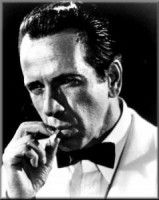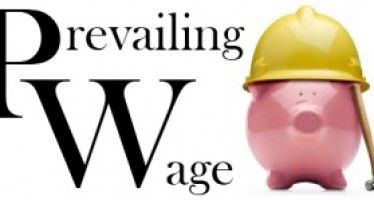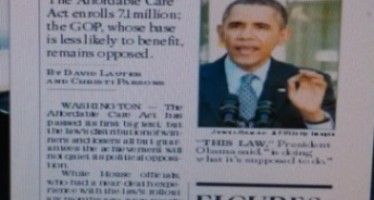SB 768 cigarette tax could promote smuggling
By Katy Grimes
A new bill could drive cigarette prices even higher. It especially would hit working-class Californians because they’re more likely to smoke than professionals.
SB 768 is by state Sen. Kevin de León, D-Los Angeles. It would increase the state’s cigarette tax another $2 a pack from the current 87 cents. That would be a 230 percent hike, to $2.87. It would raise an estimated $1.4 billion, with the money funding research into tobacco-related diseases and the stronger enforcement of tobacco laws.
The tax increase would make California’s cigarette tax rate the fifth highest in the nation, with New York’s the highest at $4.30 a pack. New York City tacks on an additional $1.50 a pack, making smokers inhale a price of up to $12 a pack.
In addition to the state and local taxes, another tax of $1.01 is imposed by the federal government.
If SB 768 becomes law, in California a pack of cigarettes would cost more than $9 at grocery stores, including sales tax; a bit less at tobacco stores. That likely will spark more black-market activity.
According to a January study by the Tax Foundation, about 60 percent of the cigarettes sold in New York state are smuggled from other states or Indian reservations with lower tobacco taxes. According to a CNN summary, “The report said that tobacco smuggling and the tax rate have risen practically in tandem since 2006. The New York State tax on cigarettes has risen 190% since that time, as the rate of smuggling increased 170%.”
De León’s bill also is advancing less than a year after the June 5, 2012 defeat of Proposition 29, the 2012 tobacco tax ballot measure that would have boosted cigarette taxes $1 a pack to fund cancer research, anti-smoking activities and more law enforcement for an expected expansion of black markets. Despite voters’ defeat of Prop. 29, its $1 tax would be doubled by SB 768.
Unlikely to discourage consumption
“Sin taxes” are aimed at currently legal activities or products frowned on by some people, including taxes on alcohol, gambling or sugary drinks.
According to the Adam Smith Institute, “Sin taxes are more likely to deter moderate users than heavy users, whose demand for cigarettes and alcohol is relatively inelastic.” “Sin taxes” are the most regressive indirect taxes, as they tend to target products that are disproportionately consumed by the poor. The law even concedes this, explaining in its own words, “Tobacco use rates are much higher than the general population in African Americans, white men, Korean men, enlisted military personnel, lesbian, gay, bisexual and transgender, young adult, rural, and low-income populations.”
Proposition 29 redux
Prop. 29 was sold as the “Tobacco Tax for Cancer Research Act.” SB 768 is backed by the same coalition which supported Prop. 29: the American Heart Association, the American Lung Association, the American Cancer Society, the Service Employees International Union and Health Access California.
These longtime proponents of cigarette tax increases said Prop. 29’s narrow defeat justified bringing it back through the Legislature. The groups also stand to benefit from the estimated $1.4 billion raised by the tax (assuming the black market does not increase so much it substantially cuts that amount). That’s the way legislation is done in today’s political environment.
The current $1.01 federal tax and the .87 cent tax in California on a pack of cigarettes apparently are not enough to keep the anti-smoking and health programs alive.
Tobacco tax monies currently are divided among the general fund and three programs:
* 10 cents to the General Fund.
* 25 cents to the Cigarette and Tobacco Products Surtax Fund (created by Proposition 99 in 1988).
* 2 cents to the Breast Cancer Fund (created by AB 478, Chapter 660 of 1993).
* 50 cents to the California Children and Families Trust Fund (created by Proposition 10 in 1998).
Cigarette smuggling
Cigarette taxes have historically been an easy mark for politicians who keep raising them. The growing intolerance by non-smokers of the smoking population helps. But the social consequences are serious, along with a lucrative black market for smuggled cigarettes.
“But state and local levies have grown so onerous in some parts of the country that they almost could be called ‘prohibition by price,'” wrote Michael D. LaFaive and Todd Nesbit, Ph.D. of the Mackinac Center. Their study looked at cigarette smuggling into Michigan, where state taxes are $2 a pack — that is, less than the $2.87 under SB 768. They found shocking results:
“And like other forms of prohibition, this one has led to a spike in smuggling-related criminal activity as smokers turn to illicit distribution channels. We estimate that for 2011, 29.3 percent of all cigarettes consumed in the Great Lake State were smuggled in.”
For SB 768, the bill analysis said:
“California tax-paid cigarette distributions have decreased dramatically over the past 30 years, both before and after passage of Proposition 10. Consequently, revenues for all funds supported by cigarette taxes have declined as well.”
Unfortunately for government budgets, revenue expectations from tobacco taxes tend to be chronically wrong. “Since 2003 there have been 57 cigarette tax increases across the nation and 68% of them have failed to meet projected revenues,” The Minnesota State News reported in 2011, when faced with another tobacco tax increase. “In 2006, New Jersey raised cigarette taxes with the hope of pulling in $30 million in extra revenue each year. Not only did the tax hike fail to bring in extra revenue, but the state actually collected $20 million less in cigarette sales.”
New Jersey’s cigarette tax currently is $2.70 a pack, also less than the $2.87 it would be in California if SB 768 becomes law.
Decline in cigarette sales means funding gap
According to the California Board of Equalization, programs funded by cigarette taxes have experienced a “funding gap” due to cigarette sale decreases.
Those most adversely impacted by an increase in the tobacco tax are working class and low-income Californians. Those with an annual income of $10,000 to $20,000 bear the burden of tobacco tax increases.
The Taxpayers Protection Alliance reports “these types of ‘targeted’ tax increases harm small businesses and could result in smuggling, which would not only defeat the purpose of tax increase but also take away money from both those businesses and the state that they otherwise would have received without the proposed legislation.”
Ironically, smokers and heavy drinkers do not cost the state more for health care, according to the Adam Smith Institute. “Though smokers may cost more during their working lives, non-smokers require greater expenditure in pensions, nursing care and welfare payments. Chronic diseases associated with old age are far more expensive than the lethal diseases associated with smoking and alcoholism.”
Related Articles
Unions win court round in battle with charter cities
Unions lost round one of their battle with California cities over “prevailing wages” on public works projects in 2012. That’s
For The Los Angeles Times, a highly revealing juxtaposition
If you’re a conservative or libertarian who’s not just mad but astounded by how much the media protect Barack Obama,
Democrats pluck low-hanging car dealers
June 29, 2012 By Dave Roberts For California’s Democratic legislators to take on used car salesmen is to grab the





